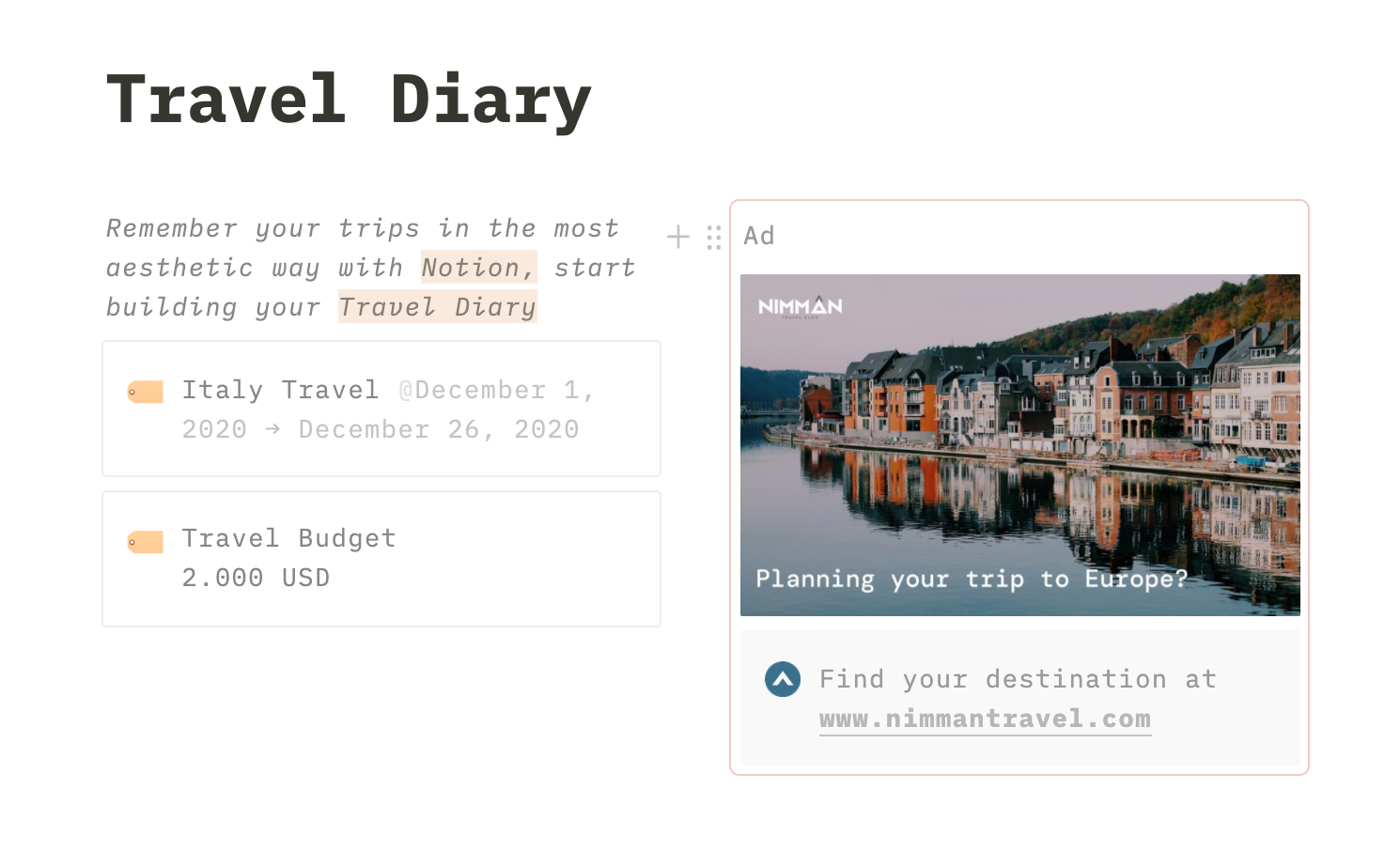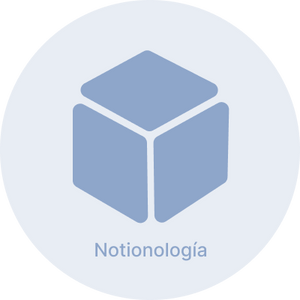Notion Synced Blocks were a significant release in the Block x Block event of last month. This new feature allows you to share information on any number of pages by pasting the block as Sync; therefore, if you change something in one of the blocks, the change will be automatically applied to all the copies. This feature solved a major pain point for users that need to update the same information by copy-pasting within several pages.
Some user cases
Once the community started digging into this new characteristic, a lot of surprising user cases popped up: Notion recommended using the Sync Blocks as a Company Bulletin Board (very interesting for company Memos and announcements). Frances Odera, from the Notion Bar, also shared her amazing idea of using the Synced Blocks for posting updates and announcements within her templates (a great communication channel with the audience). Other creators also started to use them at the foot of the templates to avoid copy-pasting their social media information.
The result of our Brainstorming
Alongside Daniel, we started brainstorming about Synced Blocks uses. We did this exercise for Notionología and also for our Premium Templates. After thinking through the ideas, it seemed that the winner was using Synced Blocks for Advertising. Additionally, we started trying formats and images layouts, and we made a list of products and blogs that could be good companions for our templates.
Honestly, we were very excited that we came out with this idea, as it is a channel for creators with high audiences to increase their monetization. Also, it is a way to recommend products that can improve the use of templates or allow small projects to reach bigger audiences.
Testing Stage: Love and Hate
After thinking it through, we conclude that maybe it was good to make a little test and see how users respond to the idea. So we released a picture with an Ad sample on Twitter and Facebook. We use an Ad for our Travel blog (Nimman Travel) and include it in our Free Travel Diary Template.
The response on Twitter was very peculiar. In the beginning, the tweet had a lot of Media Engagement, but no one was giving likes. Besides, we weren't getting the feedback that we were looking for as no one was giving comments. However, after a day, creators started to support the idea and giving us very positive feedback; primarily, related to how this will be useful for affiliates or complementing products.
Facebook's Groups response was contrary. 90% of the feedback in comments was highly negative, and oddly, it was negative from users and some creators. This is understandable, as we know users get tired of Ads, especially the ones that are not related to their needs. We also noted a little confusion, as some users thought that the Ads were on Notion and not on Notion Templates. Additionally, there were comments related to the possibility of deleting the Ad-block after downloaded the template. The other 10% of feedback was very inspiring; we got to think about terms of use in Notion, how some users understand that creators look for sustainability and how this is an interesting way of monetizing if the Ad is related to the product.

Our conclusions
After all the highs and downs with the Advertising idea and the feedback we received from very amazing people in the community, we got to conclude the following:
Users have rejection for the "Ad" tag in general, but not from the content itself. Users do not respond well to the "Ad" title of the block. It could be interesting to name the block as "Recommendations" or "You may like" so users do not get bias from the beginning; therefore, they will be more willing to "give it a try" to what you are sharing. However, this could go against the regulations of your country, as it could be considered hidden advertising.
The Advertising Purpose. In digital advertising, the main goal is to create conversions. However, this is a difficult thing to achieve. That is why platforms give you more tools to narrow your audience to those people that can, for real, be interested in what you are advertising. This can be easily achieved in Notion Templates, as you have the audience narrowed from the beginning.
Goals and Analytics. All Advertising campaigns have different aims, from conversions to awareness. Of course, you won't be able to set all kinds of campaigns through Notion, but awareness and sales campaigns can be easily implemented. For awareness, you can estimate the reach through template downloads. Even if the Ad-block is deleted, you already achieved to show the information to the user. For Sales, affiliate links are the best way to go.
Notion Terms & Conditions. There were some questions regarding Notion changing their terms as a result of a decline in users if creators start implementing Ads. We think that this is very unlikely. For instance, every day more companies are using Notion to create their websites, thus, is not such as crazy to think that these companies seek to advertise at some point in their journey. Moreover, we think that the wider the ways of creating money with Notion, the wider the user's community.
Monetizing the work of creators has always been a controversial and complicated issue. However, one shouldn't condemn the desire of creators to increase the value of their work and seek a sustainable income.
In this sense, this is one more option that can be very interesting for creators with large audiences. Nevertheless, it is always good to analyze how your users may respond to this practice and consider the associated risks of implementing Ads in Templates.
Finally, we think that it is extremely important to have good Advertising Practices; do not include large amounts of ads, keep ads relevant, use them to improve the use of templates, and do not promote products or services against your brand values.
